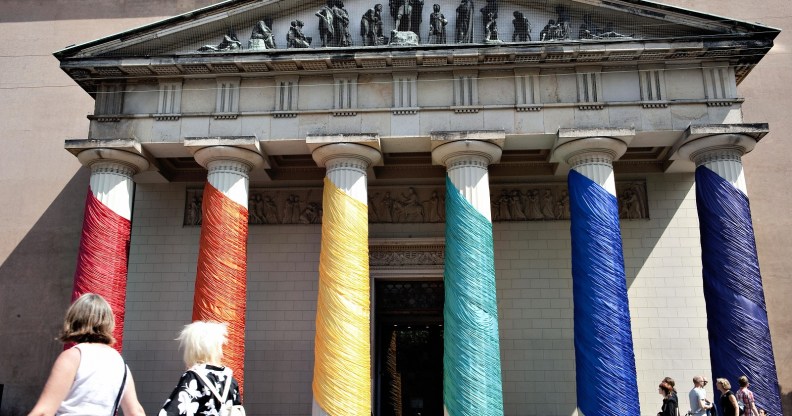Video: Ten thousand march in Copenhagen against anti-gay laws in Russia

Five times the number of participants than were expected took to the streets of Copenhagen earlier this week to protest against Russian President Vladimir Putin, and anti-gay laws passed in Russia.
Ten thousand people turned up to the rally on Tuesday to demonstrate against the Russian laws which ban the promotion of “non traditional relationships”, the adoption of Russian children by foreign same-sex couples, and make it possible for the government to fine groups, including LGBT charities, for receiving foreign donations as “foreign agents”.
Organisers of the demonstrators in the Danish capital had expected 2,000 to turn up to the rally, but media reports out of the country suggest that five times that number attended.
The video, posted by Eyes on Denmark, features footage of the 10,000 in attendance, some of whom paint zebra crossings in rainbow colours, carry rainbow balloons, and placards protesting the Russian laws.
Denmark’s Foreign Minister, Villy Søvndal warned Russia they would raise the issue at the European Council and potentially take the issue to the United Nations should Russia continue down its current path. He said: “The law is objectionable. It risks fostering discrimination and the abuse of minorities in Russian society – something we have already seen examples of, and to which the law gives the stamp of approval. We will hold Russia to its international obligations.”
President Vladimir Putin signed the law in June banning the promotion of “non-traditional relationships” toward minors, a move that has been criticised as part of a broader crackdown on Russia’s gay community. Other laws banning the adoption of Russian children by foreign same-sex couples, and one which enables organisations receiving funding from abroad to be fined as “foreign agents”, were also passed.
The laws have so far sparked controversy among LGBT activists, with some calling for a boycott of the 2014 Games. Others have also called to boycott Russian vodka as a form of protest.

